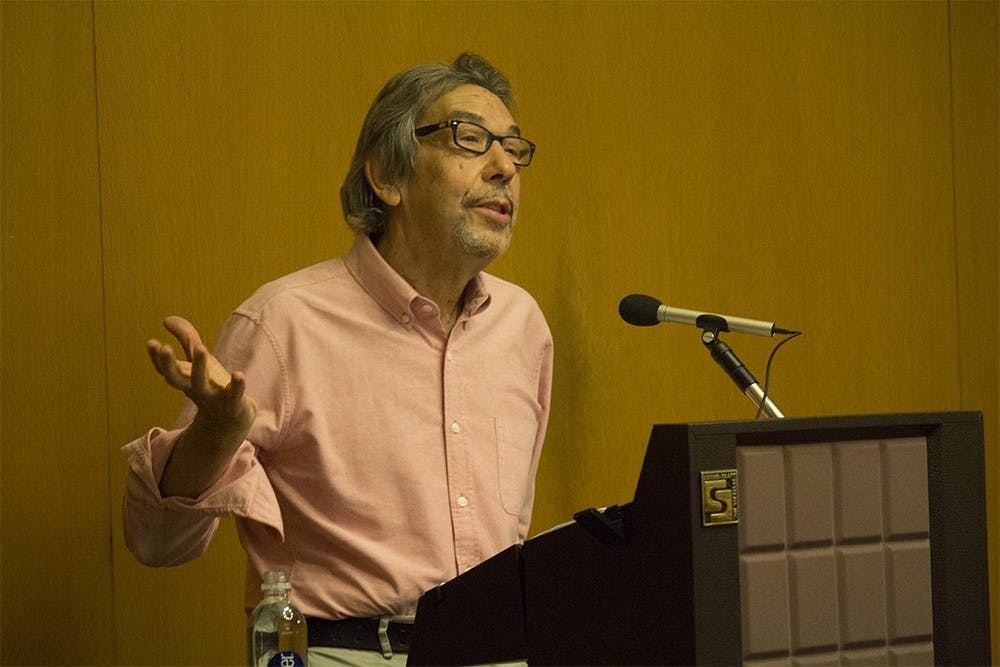“The content of this evening’s lecture may contain a certain amount of capitalist-bashing, mostly of a bare-knuckled variety,” he said. “Listeners who find this offensive and potentially traumatizing should locate themselves close to the exit signs so that they can be directed to a safe space — the lobby of the JP Morgan Chase Bank over on 3rd street. Defibrillators will be provided and martinis served by butlers in formal attire.”
Wald, a professor at the University of Michigan, visited IU at 5:30 p.m. Thursday to lecture on the presence of the radical left in American literature.
The event was a part of Themester, the semester-long themed events series put on by the College of Arts and Sciences every fall semester. This year’s theme is ”@Work: The nature of labor on a changing planet.” The lecture also coincided with an exhibit at the Lilly Library, which presents works and personal items of Max Eastman, a leftist American writer.
“Labor includes labor activism, commitment to workers’ rights, and that has, for better or worse, been the province of people coming from the political left who advocated for workers’ rights, often also for women’s rights — some of these things were connected,” said Christoph Irmscher, professor of English and curator of the exhibition on Max Eastman. “Some of the writers that especially Alan has recovered were workers themselves, so that, of course, is intimately connected to the theme of labor.”
The Lilly Library recently received new material for the collection after Eastman’s last wife, Yvette Eastman, died in 2014. Irmscher said Wald’s lecture contextualizes the work of Eastman and how he fits among the history of people campaigning for equal rights in the United States.
Irmscher also said he feels Wald is a part of a community studying radical writing focused on reaching audiences.
“One of the great things about the scholarship of radical writing in the U.S. is that these people really want to reach audiences, really want to make a difference,” Irmscher said. “Therefore, you will find them writing in a style that is not dense, not intended just to reach a few scholars. These are people who want to make a difference with that kind of writing.”
During the lecture, Wald discussed the bond between literary radicalism and radical politics. He said the two are related, but the exact nature of their relationship is debated.
“In my own rendition, literary radicalism is not the arm of political radicalism, but the two operate in tandem,” Wald said.
Wald also discussed the aim of literary radicalism, which he said is “to endow history with meaning.”
“Literary radicalism is less a noun than a verb,” Wald said. “It’s a work in progress, an evolving tradition of activism and commitment obsessed with its own identity. Its orders, its achievements, its efficacy.”






